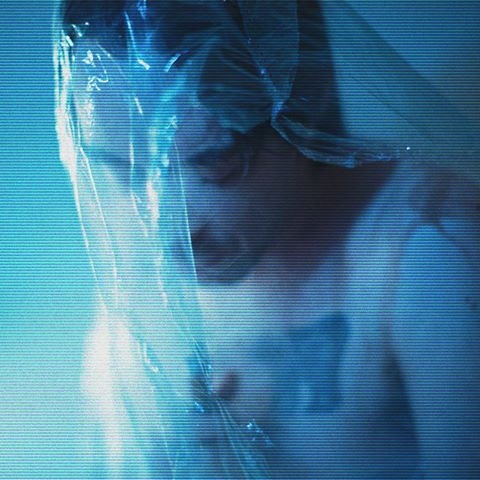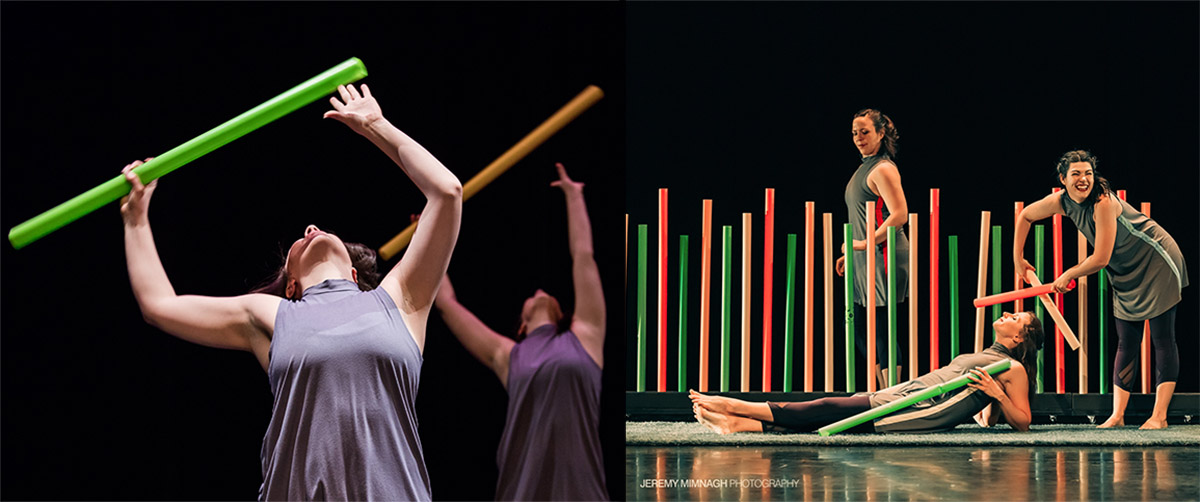
The Many Worlds of Dan Boeckner
Talking with Dan Boeckner, you get the sense that he’d really be at home surrounded by robots in a world where sleep doesn’t exist. He rattles off futuristic references as though he’s actually been to the universe Blade Runner is set in. In fact he may even be a replicant or, at the very least, a clone with the amount of projects he’s got on the go.
Boeckner Prime, we’ll call him, was born in Lake Cowichan, British Columbia and in his 38 years he’s been a member of indie-rockers Wolf Parade, the post-punk revival group Handsome Furs as well as Atlas Strategic, the Divine Fits and, of recent, Operators. Yup, definitely clones or, possibly, there’s a place manufacturing Dan Boeckner androids for better benefit of the music industry. They don’t eat. They don’t sleep. They just rock!
He’s lived in Victoria, Montreal, Los Angeles and, maybe, 2019’s Neo-Tokyo! You see, I have the suspicion he may also be a time traveller. Take the sound of Operators, for example. It’s like it was ripped right out of the space-time continuum, moving at light speed from an L.A. club in the mid-80’s and into modern times cleverly disguised as inspiration. We’re on to you, Boeckner!
We had a chance to talk with at least one version of Dan Boeckner about his many projects, new album Blue Wave, influences of the past, present and future as well as the wild stage shows he’s been known for before he vanished into the night to whatever where or when awaits him.
Ottawa Life: With other bands on the go what was the catalyst to kicking off another with Operators?
Dan Boeckner : I was halfway through an album cycle with Divine Fits and living in Los Angeles. After the breakup of the Furs I was really feeling like this huge part of what I wanted to create and perform was just gone. I didn’t really have an outlet for anything based in electronics and I felt frustrated that this sort of musical language I’d been developing –a very personal one that pulled from post communist spaces, Sci-Fi, post punk and dance music– had been effectively cut off by the dissolution of the band. I bought an Electron MonoMachine one rainy day in Vancouver without having any idea how to use it. I figured, it’s the same way I started with the Furs, just dive in and try to apply creativity and a feeling to this unfamiliar work environment. A challenge. I started spending nights in LA just sketching out songs and soundscape type pieces to get a mood down. That was the beginning of Operators. The band itself didn’t really take shape until Devojka came on board and we started live sequencing through a big, loud PA. Those first rehearsals we ended up writing “Ancient” and “Bring Me the Head” both in pretty rapid succession. There’s a great feeling of limitlessness and possibility when you start a new band. When you’re forming. It’s not really something you can monetize or even share with people but it’s one of my favorite things in life.
Some people have trouble juggling life and touring with only one group. However do you find the time to give each group/project attention?
I think I always just put music and work first. It’s never really a matter of making time to do things or write. I feel bad if I’m not working. I need to write and tour. It keeps me sane.
What would you say differentiates Operators from your other bands?
I think Operators is inherently a little more visceral and psychedelic than my other projects. Everything is amplified and pushed to the front in a way, sonically, lyrically, and performance wise. I like to think of Operators living in a possible alternate timeline that never happened, if that makes sense. Almost like the late Trish Keenan’s idea of Broadcast. It’s a kind of hauntological space, like a pop band existing in the 2017 of the Blade Runner universe which, of course, is a very 1980s version of 2017. It’s a technique that a lot of the “new school” Sci-Fi writers of the 1970s (Philip K. Dick, Samuel R. Delany, and M. John Harrison) used to turn a lens back on what they saw happening politically and socially around them at the time. I think it’s a tool that’s being used now again in this 5th wave of Sci-Fi or “new weird fiction” or whatever you want to call the genre that Jeff Vandermeer and Lauren Beukes are writing in. The only place you really see it happening in music is in deconstructed new dance/electronic spaces. People like Laurel Halo, Gazelle Twin and James Holden all like to f**k with idea of unsticking themselves from time and place, genre wise. Create non linear dystopias or utopias and use those fantasies to force the listener to check and reassess the present. And Sci-Fi metaphysics aside, this is definitely the danciest, grooviest band I’ve ever been in.
Some have said Operators may be the ultimate Dan Boeckner band. What do you have to say about that?
That makes me happy. (laughs)
Did you personally approach this group with a different path in mind?
A little, yeah. Originally, I thought Operators would be much more melted analogue synth. No guitars. Once we started touring, the band got more wild. The guitar crept back in. The song structures got unshackled from the sequencers and I think we figured out exactly what type of band we are.

I read an article that mentions Operators making headlines for their live shows, relating them to sweaty, woozy dance parties. Can you elaborate on that from your perspective?
Well, I want to make people move. I don’t want the live show to be a passive or contemplative experience. I want people to lose themselves in it. As a performer, I often sacrifice total accuracy for total commitment to the vibe. I think everyone in the band does. We want it to be a cathartic sound wall that you can just let yourself go in. We played “Camp Wavelength” recently and at one point I looked up and saw a bunch of people dancing and flailing around with sparklers, facing each other, not necessarily focused on the stage but just losing it. That made me really happy. That’s the kind of audience energy that makes a performance less a thing to watch and more a communal experience.
Is there much planning that goes into these epic live shows or is it all pretty spontaneous?
We have effectively zero stage production. We just get up and play. All the planning is in drilling the songs until they’re airtight. And really focusing on how everything sits together and where the push and pull of the music sits. I’m lucky to be in a band with everyone in Ops. Devojka is always tweaking where this burst of syth goes or where the filter sweeps on the bass are and Sam is always pushing himself to the limit of his drumbilities. Which is a word. Drumbilities.
What were some of the influences in Blue Wave’s sound? The album seems to have a more guitar punk focus with a lot of new wave 80s laced throughout.
The intersection of the wild, abrasive elements of post punk and the synthetic sweetness of pop that was all over songs in the 80s was a big influence on me for this record. And Krautrock. I wanted to apply the weirdness and chaos of early Krautrock to the more dancey songs on the album. And in the middle of all that I kind of fell in love with guitar again. Going back to the first Wolf Parade album, I’ve always loved certain really specific sounds and on Blue Wave I felt like I got to record my dream version of that palette.
With the band having formed in 2012, why do you think it took a few years to put out the first full album?
I think if we hadn’t have gone on an epic North American tour with Future Islands after tracking 14 songs at Hotel 2 Tango in Montreal we would have released those sessions as a full album and Blue Wave as LP2. After we got back from tour, I felt like the band had mutated into something else altogether and it seemed weird to just put out an album that didn’t represent us anymore.
Can you tell me about how some of the songs came together in the studio? There does seem to be a lot of layers there.
It was different for each track but the basic MO was to track the sequenced synths as a bed and then track the live instruments in the room together. We’d break and then start either overdubbing or strip things away to their essential core. The song “Evil” was done live off the floor, “Space Needle” was bed tracked live and then Devojka came up with these great counterpoint mono synth lines when she and I were doing overdubs with Graham. I loved working with Graham. We ended up using the studio like an instrument.
 I read that your move to California helped form some of the ideas behind Operators. What was it out there in which you found inspiration in that wasn’t necessarily here in Canada?
I read that your move to California helped form some of the ideas behind Operators. What was it out there in which you found inspiration in that wasn’t necessarily here in Canada?
I think it was environmental. The weird blankness of the suburb of San Jose I lived in for a while was actually beautiful. Blank and quiet but you felt like you could project anything on to it. It was a lot like what I imagine living in an off-world colony for humans designed by a race of aliens who only had 90s sitcoms to base all their aesthetic decisions on would be like. My life in SJ coincided with the real mainstream rise of this creeping, neo-libertarian ideology that’s unfortunately infected a lot of public and private life now. Getting to watch that develop from its own ground zero informed a lot of the more paranoid, dystopic themes on the album. Writing it was like reporting, in a way.
Earlier this year you announced Wolf Parade would be performing again. What got that ball rolling and how will it affect your work in Operators?
I think we all just collectively decided the hiatus was over and we should get to working writing new songs and playing some shows. We all missed it. Working with both bands at the same time just means I don’t get many days off. I honestly feel a few of the tunes on Blue Wave could be placed in a time machine and rotated on a 1980s radio station or in the club scene at the time.
Do you feel that these songs can be integrated into that time period and, if so, how do you think they would have been received?
If an alternate timeline John Hughes used an Operators song at the end of an alternate timeline John Hughes movie, alternate timeline me would be stoked.













